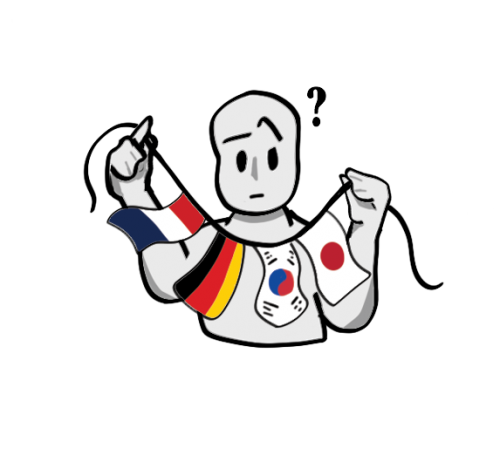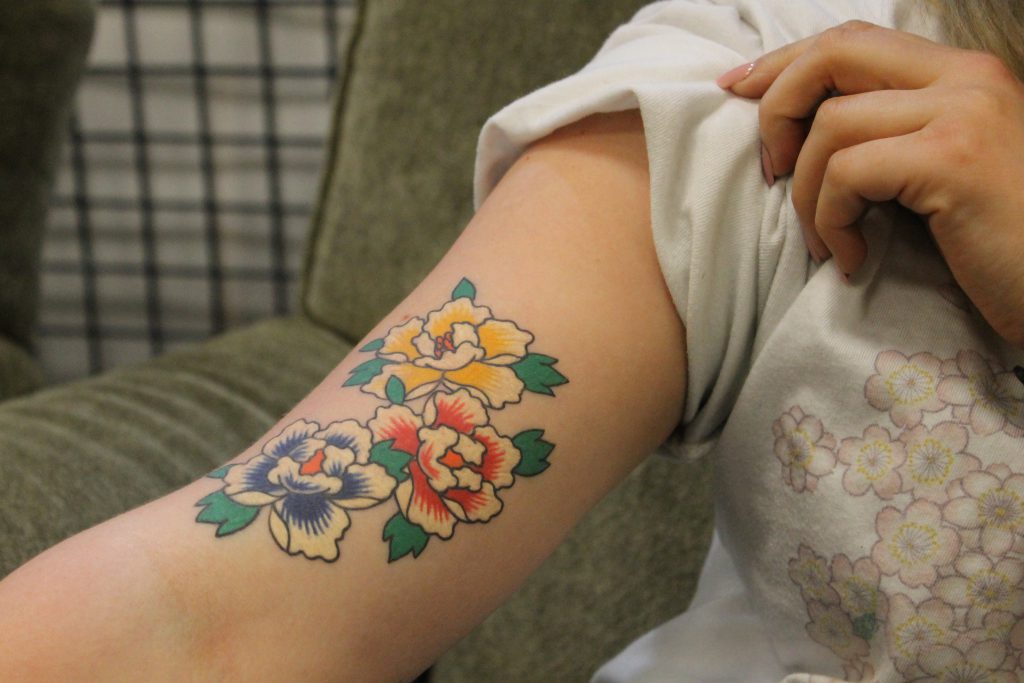Elliot Fylstra|Marlin Chronicle
Following the retirement of the sole German professor, Susan Wansink, there are currently no in-person German language classes offered at Virginia Wesleyan University.
At Virginia Wesleyan, discussions about the breadth of language offerings have sparked interest in enhancing the university’s commitment to providing diverse language options.
As VWU aims to foster global citizenship and promote international education, students and faculty members are questioning the effectiveness of current offerings and advocating for the inclusion of new languages that reflect the evolving cultural landscape.
Currently, VWU offers an array of language programs, limited to European languages. Students can attend Spanish and French language classes on campus for a modern language education, as well as Latin and Greek language classes for a more classical education.
Although French, Spanish and Latin are in high demand for many universities, this language selection has left some feeling unsupported in their educational pursuits.
“I had planned to take German 1 through 4, but was cut off after German 2 because of the lack of offered German content,” said Tidewater Community College student Nisan Bates. Bates attends classes and events at Virginia Wesleyan as a part of TCC’s dual enrollment program, and now has his German plans put on hold.
Although the changes to the German offerings are fairly recent, there has been demand for expanded language courses at VWU for a long time, especially for Asian languages. “VWU lacks Asian representation, especially in the language department. Including these languages would reiterate our commitment to diversity beyond what is typically imagined,” junior Andrew Steiner said.
Other students have expressed that Japanese would be a worthy addition to Virginia Wesleyan’s course offerings, considering their advertised partnership with Lakeland University, a campus located in Tokyo, Japan.
Although Japanese is offered to American students at Lakeland, it is currently not possible to begin or continue their Japanese language studies at VWU.
“I would fully support and endorse a Japanese course being taught here,” said graduate student Rowan Stuart. He shared how he believed that Japanese language skills could have augmented his experience abroad. “The language limitations of our students restrict many of the benefits of an education abroad; we ought to prepare our students by providing them the education they need to explore the world. Language courses, like Japanese, are necessary for true international experiences,” Stuart said.
“If we truly wish to showcase Wesleyan’s prowess, being able to do so in a host institution’s language is paramount,” he said. Stuart also emphasized that this could improve the reputation and image of the school.
Korean is also a frequently suggested language among Virginia Wesleyan’s students. For example, Steiner, who has Korean heritage and studied abroad in South Korea, said that “Korean could be a valuable language for students to learn, especially considering Korean culture is very prevalent among our generation (kpop/kmovie/kdrama) and therefore a popular study abroad or travel destination.”
“It would prepare students for a globalized job market, where bilingual skills are highly valued. Korean…is significant due to South Korea’s growing economic and cultural influence,” senior Grace Park said. Park, an international student from Korea pursuing her full degree at Virginia Wesleyan, emphasizes its relevance to American students.
“Offering more language options fosters cultural diversity and enriches students’ global perspective, aligning with modern educational goals of producing well-rounded, internationally minded graduates. This could also attract a broader range of students, enhancing the university’s appeal and competitiveness,” Park said.
Students have argued that increasing language course offerings at Virginia Wesleyan could have a number of benefits for students, and even the university itself.
Dr. Alain Gabon, the sole French professor at Virginia Wesleyan, expressed concern over the current limited offerings. “The vast majority of our students do not spend a single hour in their 4 years here learning any language,” Gabon said.
Gabon further emphasized that language learning is important to a student’s global citizenship, “unless suddenly, what is the first, most ubiquitous, most pervasive and most permanent inescapable reality one encounters and has to deal with the second we set foot outside the English-speaking world is no longer that people out there do not speak or understand English and only a small minority of the world’s humanity do.”
Considering VWU’s title of “Global Campus” and its emphasis on quality education in the humanities, those advocating for an expansion of the language program argue that diversity is necessary to align with these pursuits.
“At the moment, I would say that, despite our grand professions of faith, the education we are giving our students is anything but international, and even less global. And cutting the few, already minimal language programs we have here will only make it even less so,” Gabon said.
As VWU navigates its identity as a global campus, faculty and students alike emphasize the need for a more diverse language program. Students’ calls for expansion is not only about adding courses, but about enriching the student experience and aligning the university’s practices with its professed ideals.
By Avery Belisle

